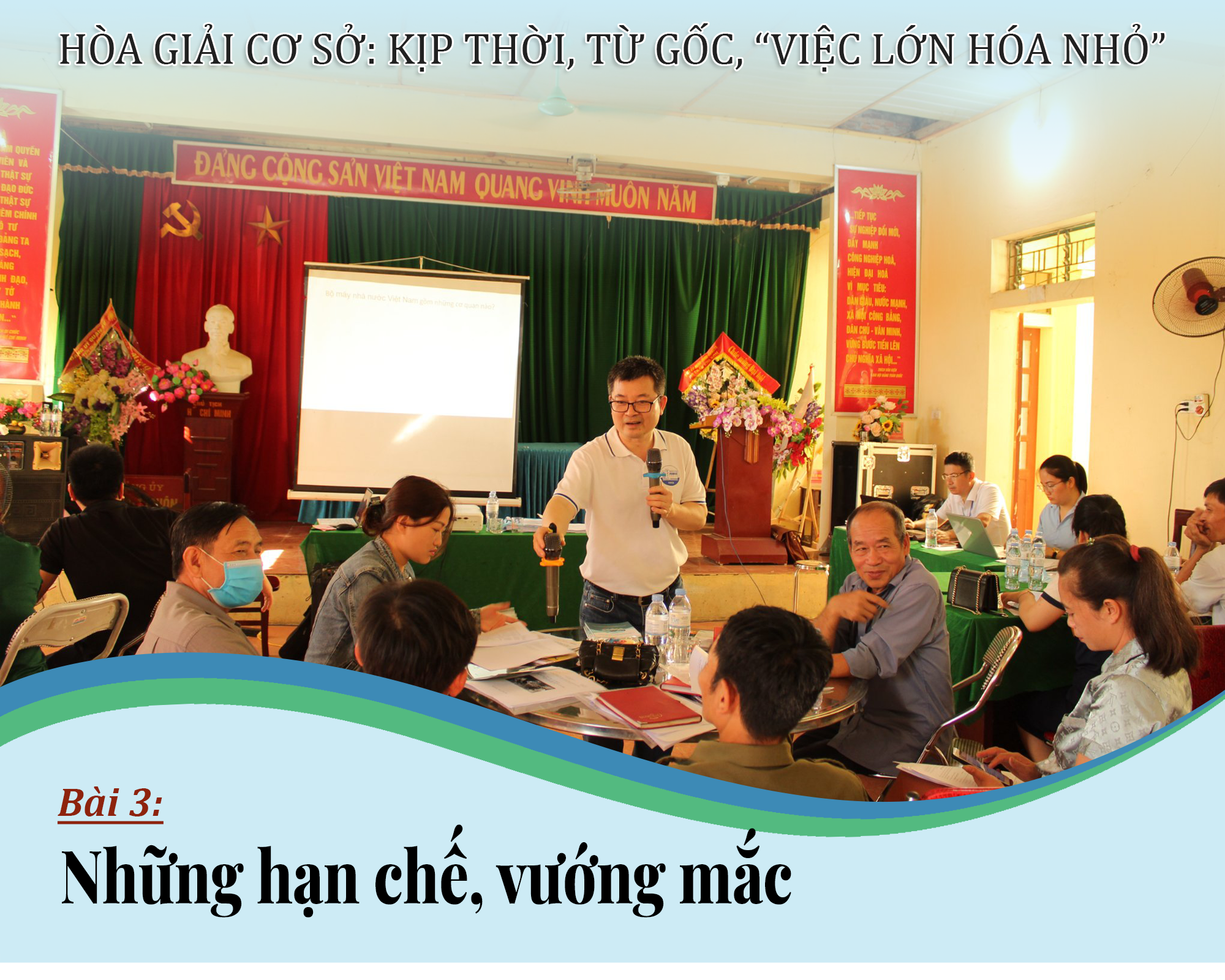
Currently, in all villages and hamlets in the province, there are mediation teams and their activities are increasingly effective. contributing to reducing disputes and conflicts, strengthening village and neighborhood ties, stabilizing security and order at the grassroots level, and raising awareness of law compliance among the people. However, this work is still facing many difficulties and obstacles...


Recognizing the importance of grassroots mediation, in recent years, the Party Committee, government and functional agencies in the province have paid attention to perfecting mediation teams and improving the quality of the mediator team. In particular, lawyers, jurists, former judges, prosecutors, investigators, enforcement officers, examiners, retired officials, civil servants and public employees are encouraged to work as mediators or support and assist mediators in their residential areas, however, the participation rate is not high.
In practice, the majority of the current conciliation team are mainly prestigious people in the residential community, held by the executive committee and the head of the neighborhood association. Some conciliators have limited legal knowledge and uneven capacity. While conflicts and disputes among residents tend to be complicated, especially in the fields of marriage, family, land, etc., conciliators must have certain legal knowledge and skillful handling methods to successfully conciliate.
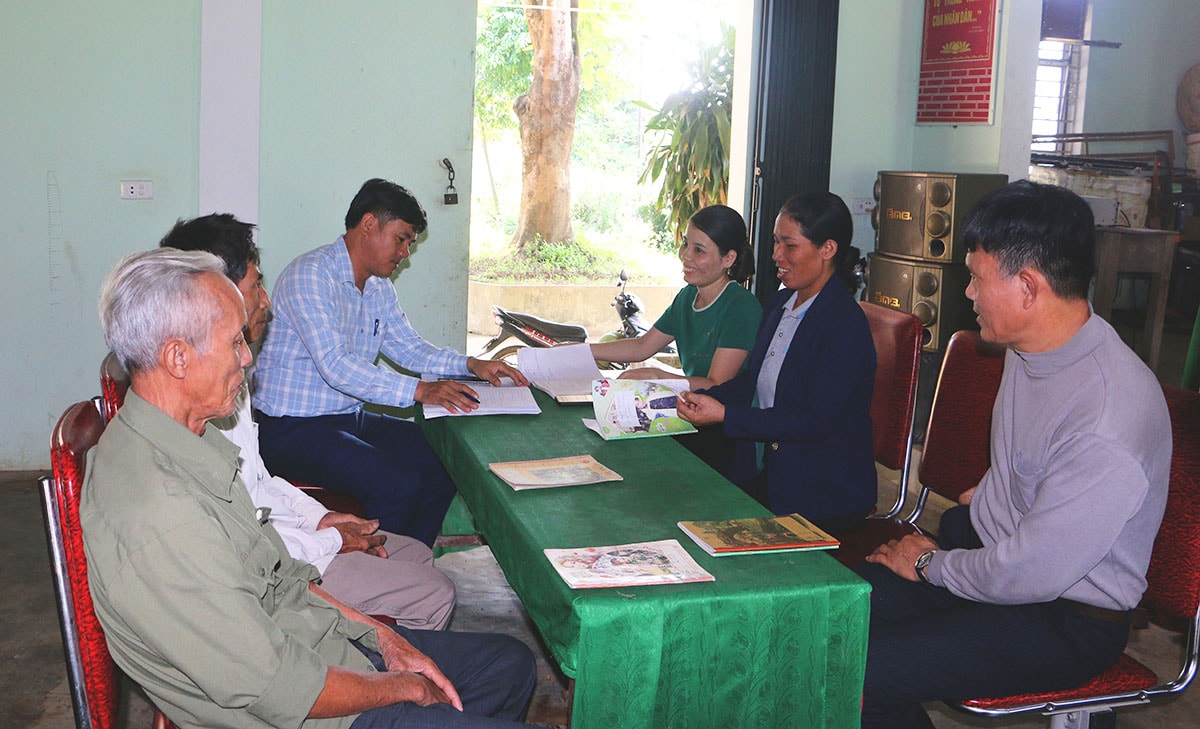
Ms. Le Thi Kieu - Deputy Head of the Justice Department of Dien Chau District People's Committee said: Because mediation is a "prison-bearing" job with conflicts, many people avoid it, and have not attracted retired officials and civil servants, especially from the fields of police, army, judiciary, inspection... to participate. In the period of 2019-2021, the whole district had 2,100 mediators. By 2022, the District Justice Department had directed the consolidation and reduction of 1,400 mediators in 287 mediation teams. However, the number of retired officials and civil servants was only 25 people; the number of people with professional expertise in law was only 165 people, accounting for 11%. Some mediators are still afraid of conflicts, not bold, and lack enthusiasm in mediation activities, so many disputes, especially land disputes, have not been detected in time.
Similarly, in Do Luong district, there are 190 mediation teams with 1,330 mediators, but only 112 mediators have received legal training, accounting for 8.4%. According to Mr. Nguyen Nhu Mai - Deputy Head of the Justice Department of Do Luong District People's Committee: The educational level, legal knowledge, skills and mediation expertise of some mediators are still low, leading to the quality and effectiveness of mediation at the grassroots level being low, uneven, and not meeting the requirements and demands of practical life. Conflicts and disputes, especially land disputes and law violations within the scope of mediation at the grassroots level have not been discovered or have been discovered but not mediated in a timely manner. In addition, Party committees, authorities and socio-political organizations at some grassroots levels have not really paid much attention to the position, role and significance of mediation work at the grassroots level to regularly review and find solutions to consolidate, improve and improve the quality of the team of mediators. A part of the people do not properly perceive the importance of mediation activities at the grassroots level, leading to passivity in resolving conflicts, disputes, and law violations arising at the grassroots level through mediation measures at the grassroots level.
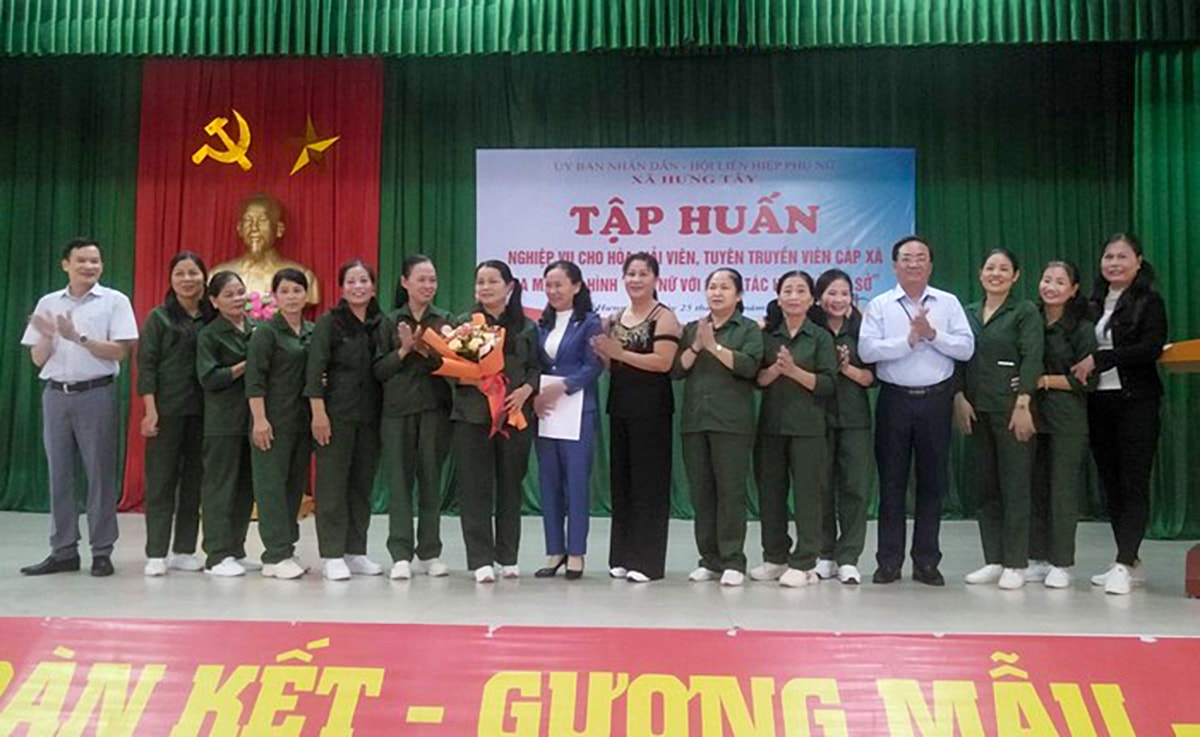
In addition, according to our (PV) investigation, the management, use and recording of the reconciliation activity tracking book at the grassroots level of some reconciliation teams are still sketchy, not showing the content of the reconciliation case, some places do not record all the years, some places lose them during the process of merging villages. The team of mediators also changes frequently, the elderly depend on health; young people have economic pressure, need to work far away... so it requires regular improvement and supplementation.
Mr. Le Ba Thieu - Head of the Department of Legal Education and Dissemination (Department of Justice) assessed: In general, the network of mediation teams in the province is not uniform, in some places the activities are still formal and ineffective. Some mediators, especially those in ethnic minority areas, have a good grasp of village conventions, conventions, customs and practices, but are still limited in legal knowledge and mediation skills, leading to a low number of successful mediation cases and limited mediation quality in many cases; the determination of the scope of mediation by mediators is still confusing.
In practice, the provision of legal documents as well as the organization of training, professional development, and skills for the team of mediators in some areas is still limited. Many grassroots mediators reflect that they rarely attend professional development courses, mainly working on experience, affecting the quality of mediation work. "Most land disputes and conflicts are very complicated and sensitive, while the system of legal documents is constantly changing... but is not updated promptly, leading to difficulties for the team of mediators", said Mr. Nguyen Ngoc Du - Secretary of the Party Cell of Bui Thuong Hamlet, Hung Trung Commune (Hung Nguyen).
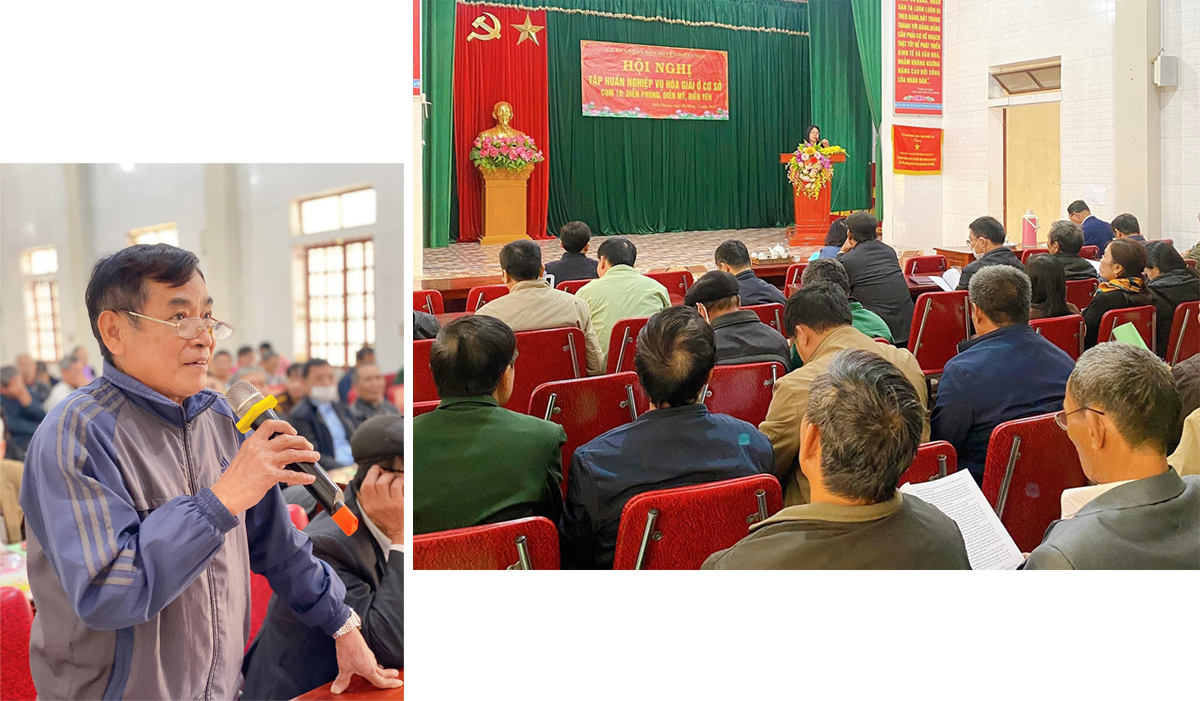

Another problem is that the issue of funding for mediation work is currently being left open. According to Joint Circular No. 100/2014/TTLT-BTC-BTP dated July 30, 2014 of the Ministry of Finance and the Ministry of Justice regulating the preparation of estimates, management, use and settlement of state budget funds for mediation work at the grassroots level, the maximum remuneration for mediators is 200,000 VND/case, work/mediation team. In Nghe An, based on this basis, the Provincial People's Council issued Resolution No. 173/2015/NQ-HDND dated July 10, 2015 regulating the level of support for mediation teams, mediators and the organization of mediator elections at the grassroots level. At the same time, the Provincial People's Committee issued Decision No. 42/2015/QD-UBND dated August 17, 2015 to specify the implementation of Resolution No. 173/2015/NQ-HDND.
However, in the province, each place is implemented in a different way. Even in the same district, the payment level is different. For example, in Hung Nguyen district, in Hung Phuc commune, there are 5 mediation teams with 33 mediators. In addition to the books, paper and pens provided directly by the commune, for each successful mediation case, the mediation team is paid 200,000 VND. However, in Hung Trung commune, Mr. Nguyen Van Du - Secretary of the Party Cell of Bui Thuong hamlet expressed: "We do mediation work because of the responsibility of cadres and party members, but up to now, there has been absolutely no regime, including the stationery regime". Discussing this issue, Mr. Nguyen Van Chuan - Justice officer of Hung Trung commune explained: "Due to local difficulties and limited budget, payments have not been made for successful mediation cases. In addition, the mediation teams do not send the minutes so there is no basis for implementation".
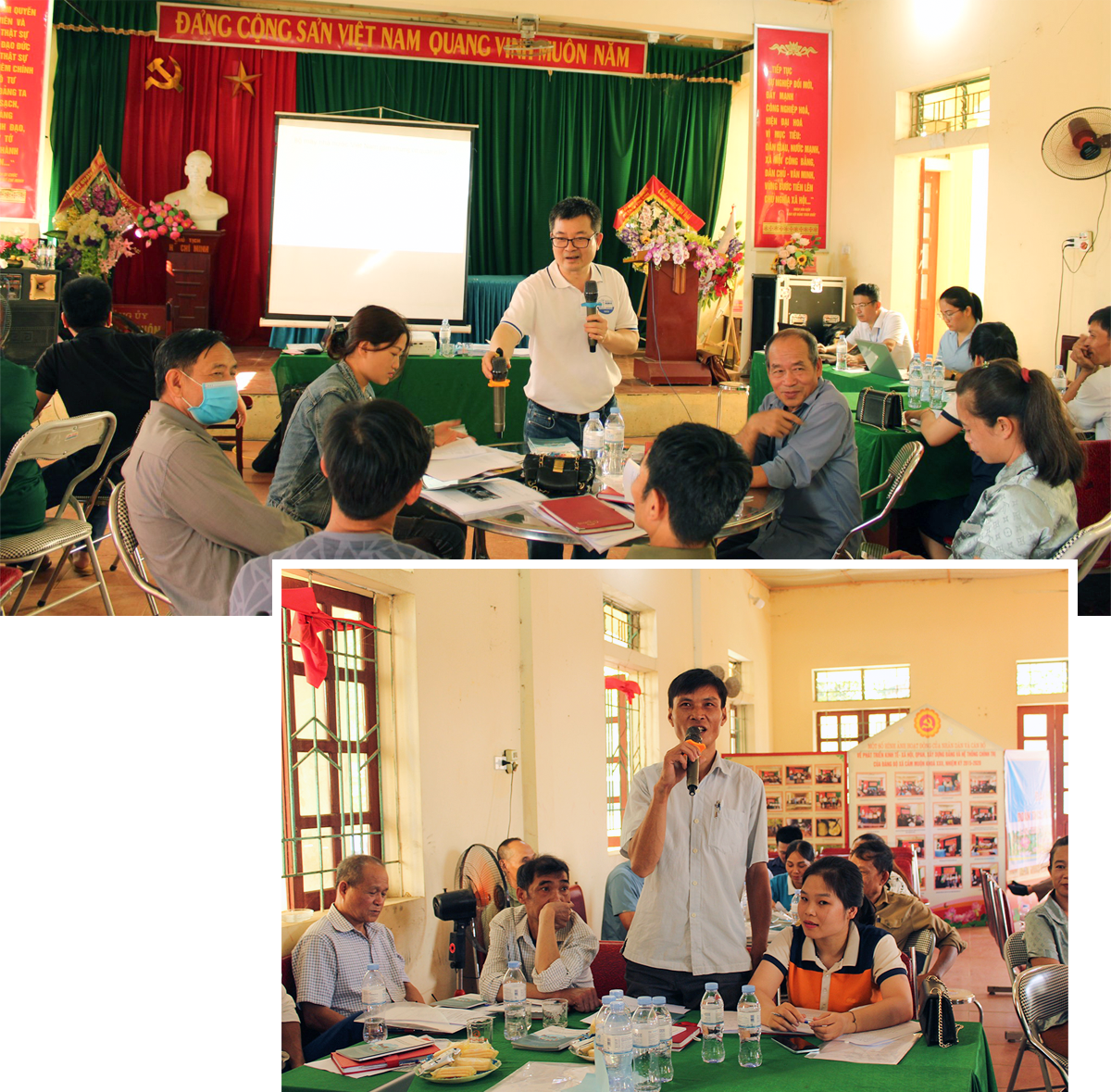
In the mountainous district of Quy Hop, Mr. Vy Hoang Ha - Head of the District Justice Department said: According to regulations, a mediation case is paid 200,000 VND in remuneration, but in reality, it is rarely paid, because the commune budget does not exist or there are no records. In Chau Dinh commune, when asked about the mediation budget, Mr. Vo Dinh An - Hamlet Chief, Head of the Chau Que Hamlet Mediation Team said: Every year, we mediate a few cases, mainly related to land disputes and illegal religious activities. Many cases require a lot of time and effort, but people think that successful mediation is a blessing, so they do not think about completing the documents to receive compensation. Besides, there is no specific guidance on this issue. Unlike Chau Dinh commune, in Chau Cuong commune, according to Ms. Lo Dien Tri - a judicial officer of the commune, the People's Committee of the commune has balanced the budget to pay for mediation work. Accordingly, 200,000 VND is paid for a successful mediation case; 150,000 VND is paid for an unsuccessful mediation case to encourage and motivate.
In Hoang Mai town, the grassroots mediation network covers the entire hamlet with 99 mediation teams and 667 mediators. However, according to the town leaders: Because the locality has not yet balanced its budget, the allocation of separate funding for mediation work at the grassroots level has not been available or has not met the requirements. At the commune level, almost no unit has implemented the prescribed spending level for mediation work.
It can be seen that, although the Law on Mediation at the grassroots level stipulates: "Encouraging organizations and individuals to contribute and support mediation activities at the grassroots level...", in reality, the budget for mediation work, the treatment and training regime for mediators in many places have not received due and timely attention. Most mediators in localities do not have a remuneration regime according to regulations, therefore, have not attracted many capable individuals to participate in mediation work.
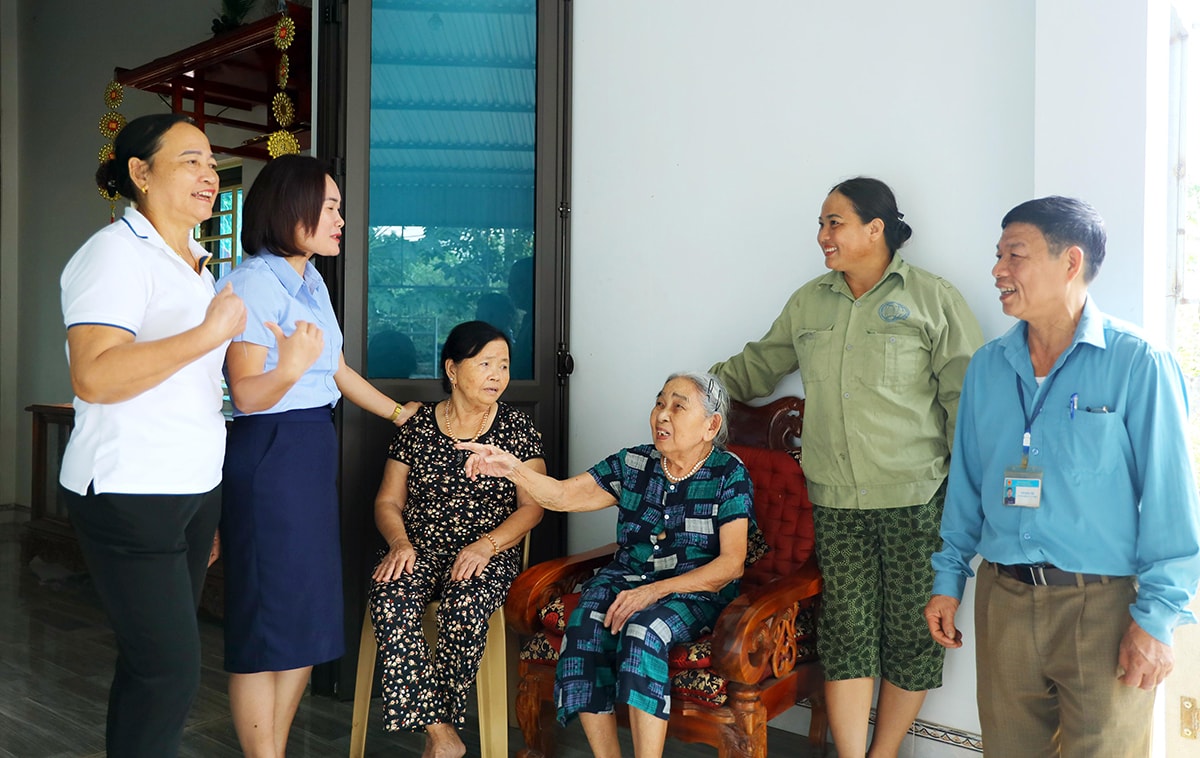
The province currently has 3,881 mediation teams with 26,269 mediators. By the end of October 2022, the total number of cases received was 3,594, the number of successful mediations was 2,667. The budget to support mediation work in the province is 506,419,000 VND, of which the remuneration for mediators is only 203,790,000 VND. There are districts such as Con Cuong, the number of successful mediation cases in 2022 is 132, but the remuneration budget is 3,200,000 VND, Nghi Loc district has 351 successful mediation cases, the total budget to support mediation work is 3,575,000 VND, of which the remuneration for mediators is 2,800,000 VND. Some mountainous districts such as Quy Chau, Que Phong, Tuong Duong... although the rate of successful mediation cases is high, in some places like Ky Son 256 successful mediation cases in 2022, but the funding for mediation work and remuneration for mediators is 0 VND. Even in the plains district like Nam Dan, 69 cases were successfully mediated, but the funding for grassroots mediation and remuneration for mediators in 2022 is 0 VND.
Mr. Nguyen Anh Tuan - Head of the Justice Department of the People's Committee of Ky Son district said: "The whole district currently has 191 grassroots mediation teams (100% of blocks and villages have mediation teams), with 1,066 mediators. From 2019 to 2022, grassroots mediation teams successfully mediated 864/936 cases within the scope of grassroots mediation, reaching a rate of 92.3%. In 2022 alone, the successful mediation rate was over 94%, but mediators have not received remuneration because the district has not yet allocated funds for grassroots mediation activities; most of the communes in the district have not yet allocated a budget and have no expenditure items for grassroots mediation activities."
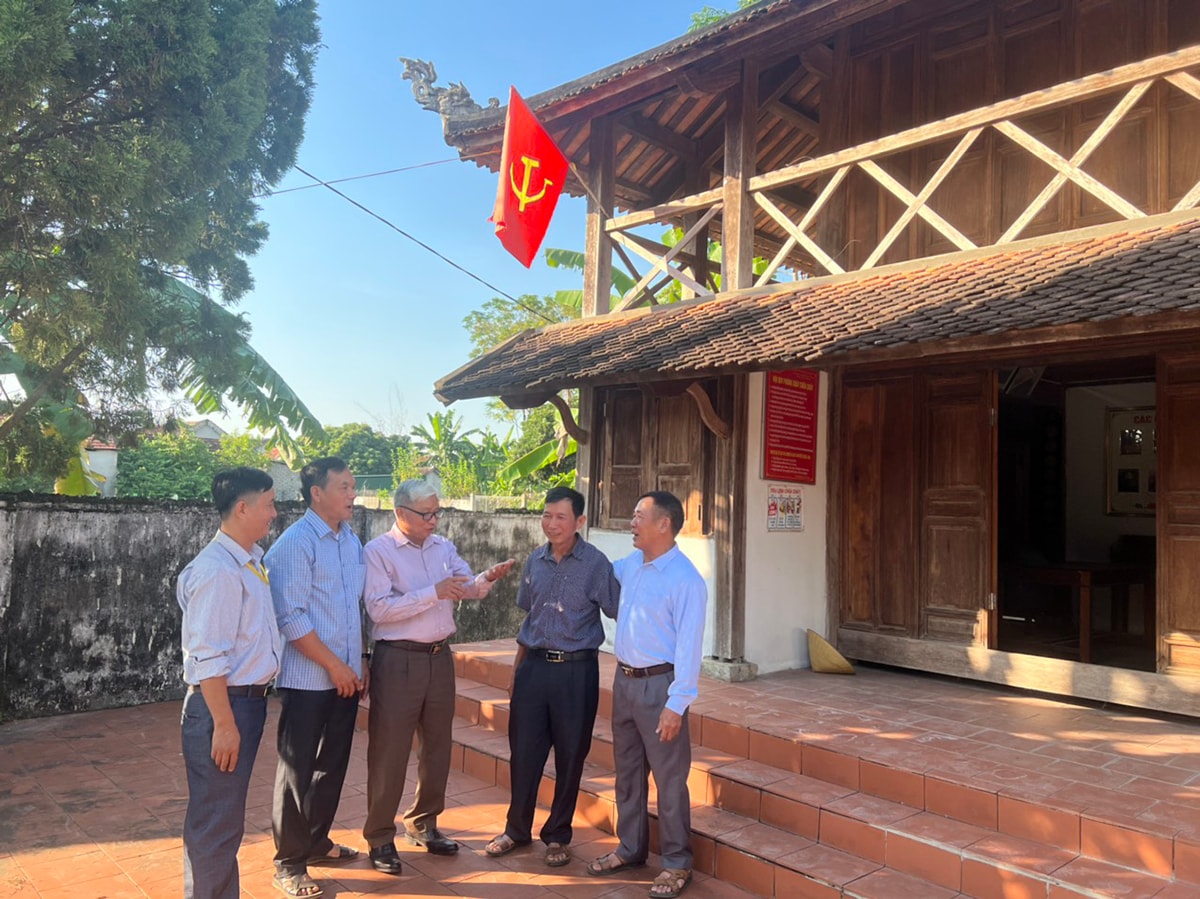
In addition to the difficulty in budget sources, according to Mr. Le Ba Thieu - Head of the Department of Legal Education and Dissemination (Department of Justice): Some Party committees and authorities at district and commune levels have not yet deeply recognized the importance and significance of grassroots mediation work, so they lack leadership, direction, funding arrangement, and investment in facilities for this activity. They have not yet performed well in state management of grassroots mediation; there are no solutions to increase the rate of successful mediation in the area. In addition, the advisory role of commune-level judicial officers is still confused, they do not fully understand the legal regulations on grassroots mediation work, so when incidents occur, they are not detected in time or resolved hastily, so the results of mediation are not sustainable... leading to the emergence of complaints that go beyond the level and last for a long time.
